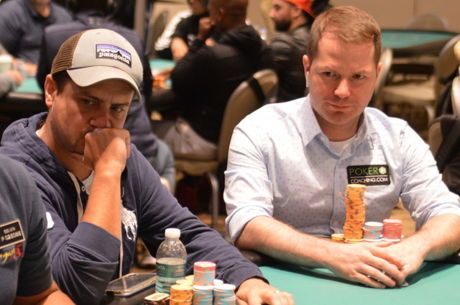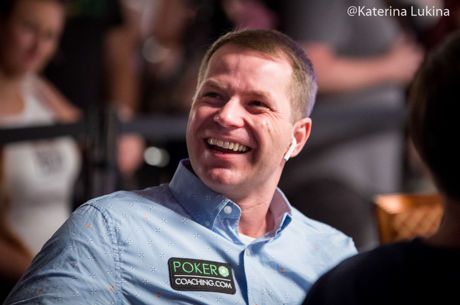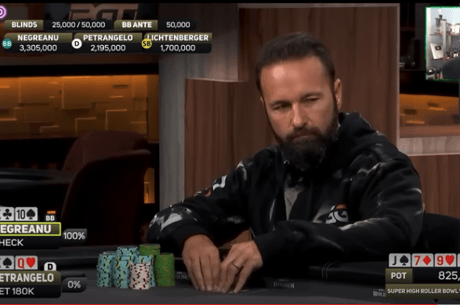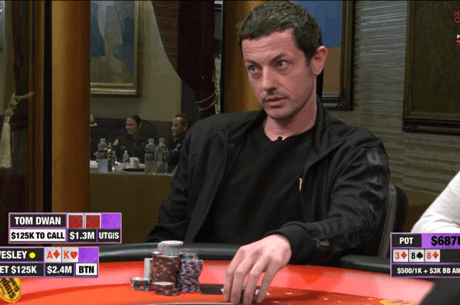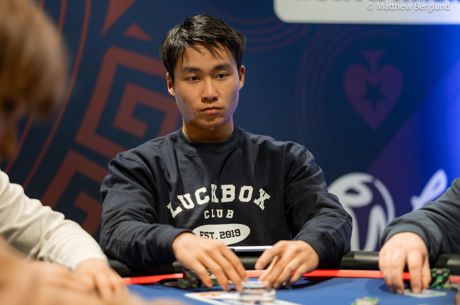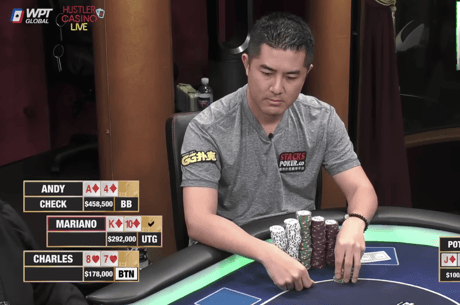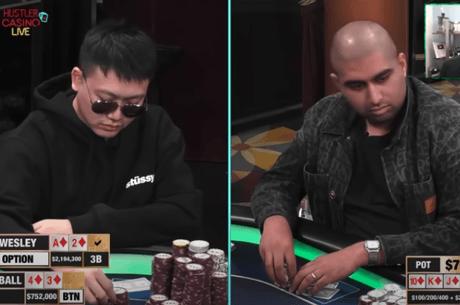Jonathan Little on Adapting a Tournament Triple Barrel Bluff to Cash Game Play

You all know from watching my poker streams that I enjoy triple barrel bluffing in tournaments, but did you know I also do it in cash games! In this week’s strategy column, I highlight this common triple barrel spot from a $5/$10 no-limit hold’em cash game I played.
It took place at an eight-handed table and started with action folding to me on the button. I raised to $30 off a $2,200 stack holding the Q♠J♠, and honestly, I’m going to be opening here with my entire playable range. The player in the big blind, who had $1,700, called and the flop came down 9♣5♠2♦.
This is a very uncoordinated board and does connect with a big blind range, but I’m still going to continuation-bet whenever my opponent checks. Whenever you have a lack of draws and showdown value, you want to start looking for hands that have some backdoor equity. Those hands much prefer betting, because if you check behind and your opponent bets the turn, you have to fold.
I bet $50 into the $65 pot, I probably could've gone a little lower like $40, and my opponent called to see the K♥ turn. I knew if the turn was a spade, eight, or overcard, I was going to be the turn every time. Basically, if I picked up any equity I was going to bet. I turned a gutshot, plus the king hit my range much harder than my opponent’s, so after my opponent checked for the second time I bet $125.
When my opponent called, I already knew I’d be triple-barrel bluffing. I don’t really care what the river is – it came the 2♣ by the way – and sure enough my opponent checked. My hand lacked showdown value, maybe queen-high could win but it’s probably not best, so in order to win I needed to bluff.
I fired out $355, a bet size I’d use with both my bluffs (such was the case here), and made hands such as pocket tens and better. That’s going to put my opponent in a nasty spot. I’m polarized and when you’re polarized you get the luxury of using big bets. Remember, we go more into balancing your range at and the cash game masterclass.
If my opponent has a king in this hand he is always going to call. If he has a nine he’ll be in a dicey spot, and if they have worse they’re always going to fold unless they’re a huge calling station.
Here, everything went according to plan as our opponent did in fact fold and we pulled in a nice pot.
For a more thorough breakdown of this hand, check out my thoughts in the following video:
Jonathan Little is a professional poker player and author with over $7,000,000 in live tournament earnings. He writes a weekly educational blog and hosts a podcast at . Sign up to learn poker from Jonathan for free at . You can follow him on Twitter .

